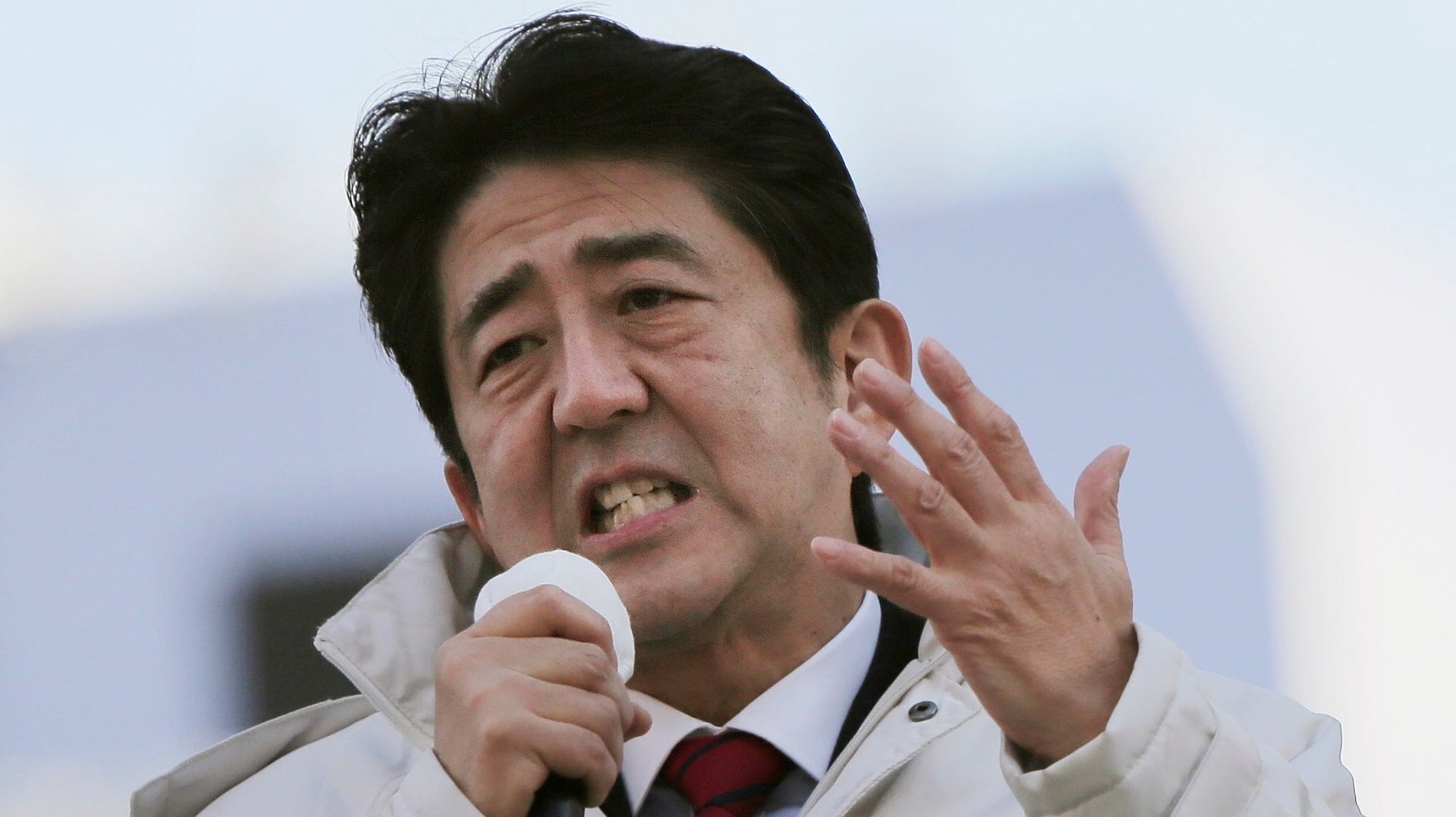Japan’s economy will keep doing the zombie shuffle unless the next government turns business on its head
The so-called Tankan survey of big Japanese manufacturers shows they are more pessimistic then they have been in almost three years. The quarterly index fell to -12 in December, from -3 in September (negative readings mean there are more pessimists than optimists).


The so-called Tankan survey of big Japanese manufacturers shows they are more pessimistic then they have been in almost three years. The quarterly index fell to -12 in December, from -3 in September (negative readings mean there are more pessimists than optimists).
It is no real surprise: A dispute between Tokyo and Beijing over some islands in the East China Sea has deeply harmed Japanese businesses in China, Europe’s slowdown has hurt Japan’s exports, and GDP has shrunk for two quarters in a row, a technical recession.
What Japan will do to pull itself out of the hole is predictable. If opposition leader a former prime minister Shinzo Abe wins the country’s elections in two days, as is likely, he will probably start a big asset purchase program, invest heavily in new public works and print an enormous amount of new money. A cheaper yen will help exporters by reducing the price of Japanese products overseas and increasing the value of repatriated earnings.
But aggressive stimulus measures could hurt Japan in the long term. As William Pesek, a Bloomberg columnist, points out, Abe’s Liberal Democratic Party, which ruled Japan without a break for over half a century until 2009, has “honed a policy” of aggressive monetary and fiscal stimulus and does not often divert from that playbook. The results have been calamitous before and could well be again. Pesek writes that, in the last few decades, the LDP “amassed the world’s biggest debt among developed nations, created a huge real estate and stock market bubble and failed to figure out a way to escape the inertia that followed.”
Japan’s next government could do a lot more than printing new money and relying on the tendency of the nation’s thrifty householders to save as well as buy lots of government bonds. It could move beyond the LDP’s “anachronistic ways”, Pesek says, and do things such as ”deregulating industry, reducing trade barriers and encouraging innovation outside of a handful of corporate champions.”
But that is unlikely to happen. Japan’s giant exporters, the ones who are feeling so low today, are so inefficient and uncompetitive that they complain about the strong yen (paywall), as if the Bank of Japan were responsible for their misfortunes.
The reason is the Japanese concept of keiretsu, which translates as “headless combine”, and describes the system whereby Japan is dominated by a group of huge interwoven businesses that work together, rather than in competition. The keiretsu firms are linked through common shareholding structures, with buyers and suppliers often owning bits of each other. Their cosiness squeezes out startups and makes the dominant firms inefficient. Once they are in the club, keiretsu members have little motivation to work hard to win business.
Aside from the yen’s strength, Japanese electronics firms are doing badly because they have failed to innovate like South Korea’s Samsung (paywall) or cut costs like Chinese manufacturers. Even before the diplomatic spat with Beijing, Japan’s carmakers were doing badly in China, their key overseas market, because their cars are not cheap enough there and they have misguidedly focused on electric cars, which are unpopular.
When a big keiretsu company becomes unsuccessful, rather than allowing it to fail so a better business can take its place, Japanese banks will prop it up with cheap loans. An analyst last year called Japan’s large group of loss-making or barely profitable companies “quivering heaps of excess baggage”, and that illustration is hard to disagree with.
Breaking up the keiretsu, allowing bad businesses to fail, and permitting viable ones to gain market share is what could end Japan’s everlasting, apathetic shuffle from inertia to recession and back again. But whatever happens in the election, no Japanese ruling party is likely to be brave enough to turn the country on its head. Let the zombie march continue.